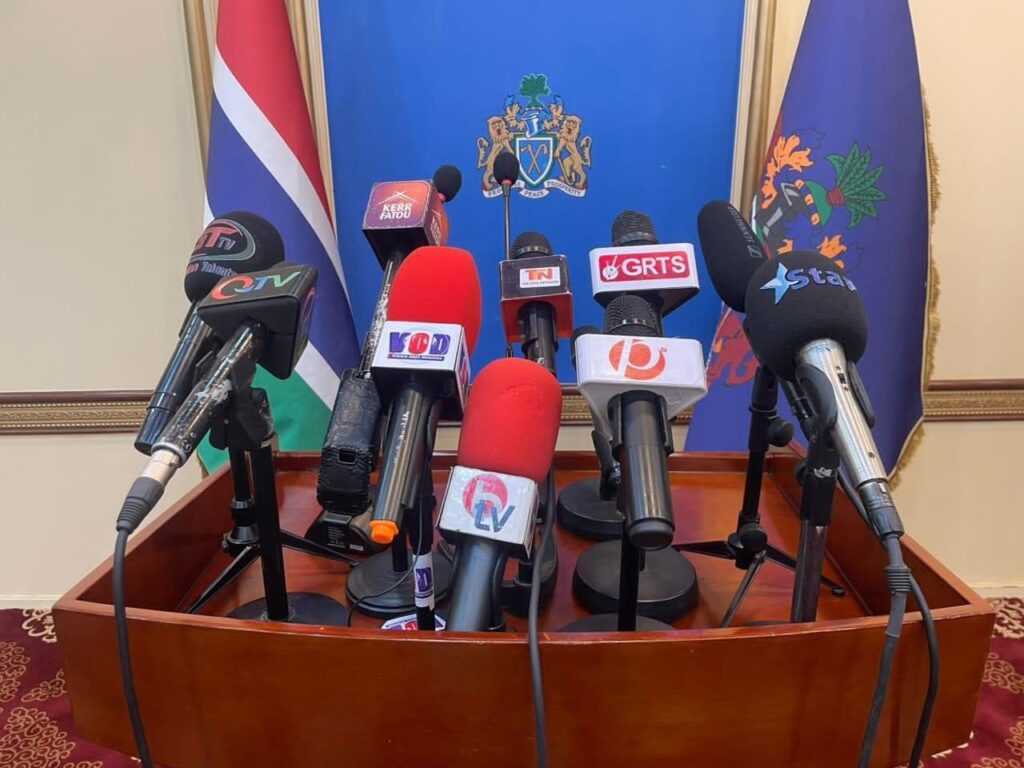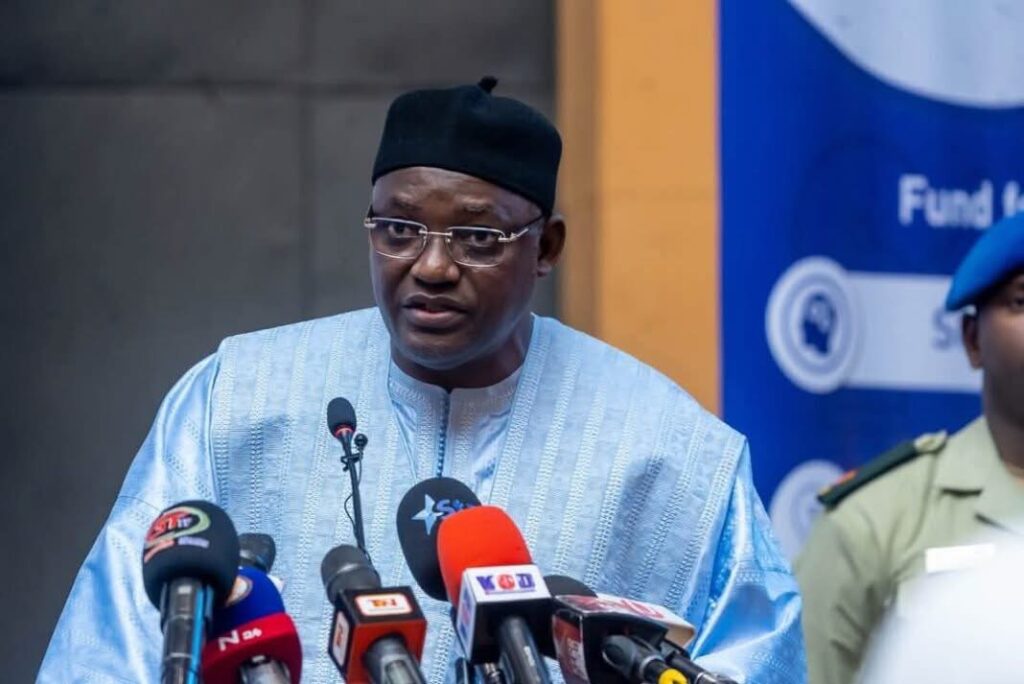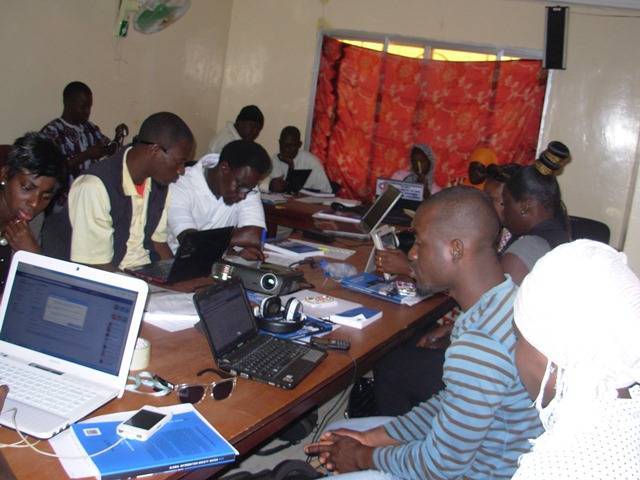
World Press Freedom Day is a moment to reflect not only on the victories achieved in media freedom but also on the challenges that persist, obstructing the full realisation of a free and independent press.
In The Gambia, the journey toward media openness and journalistic protection has been markedly transformed since the fall of Yahya Jammeh’s regime.
Today, Gambian journalists operate without fear of assassination, arbitrary detention, or exile, a stark contrast to the violent repression suffered under Jammeh—described by rights organisations as a “predator of press freedom”.
Under Jammeh, journalism in The Gambia was a profession of grave risk, where media houses were burned down, critical newspapers were shut down, journalists were jailed, exiled, or outright murdered. His legacy remains one of brutality toward the press, with a documented record of human rights violations against reporters who dared to challenge his authority.
The fight for truth under his rule was met with state-sponsored intimidation, suppression, and systemic dismantling of independent media institutions.
Since assuming office in 2017, President Adama Barrow has not jailed journalists, nor has he weaponised law enforcement to silence press voices, marking a significant departure from his predecessor’s authoritarian legacy In this regard, The Gambia has seen tangible improvements in press freedom, allowing for greater journalistic independence and more open discourse.
However, despite these strides, deep-rooted legislative remnants of Jammeh’s repressive era remain, threatening the long-term sustainability of free expression in the country.
One of the most glaring missteps in recent governance has been the enactment of the law criminalising “insulting the president and public officers”. This outdated, colonial, and archaic statute, rather than strengthening democracy, undermines free expression, creating potential avenues for censorship, suppression, and intimidation.
Such laws have historically been used to shield leadership from public scrutiny, treating criticism as criminal rather than as an essential pillar of democratic discourse. In a modern democracy, leaders must be accountable to public opinion, not insulated from it by draconian legal protections that limit expression.
Moreover, the continued existence of The Gambia’s sedition law, another legal relic, remains an alarming contradiction to democratic progress.
In functioning democracies, sedition laws—often weaponised against opposition voices and journalists—are regarded as unconstitutional, serving only to reinforce authoritarian-style governance.

Their retention in Gambian law poses serious risks to press freedom, enabling future governments to exploit these provisions for political suppression should they choose to do so.
President Barrow must also recognise how misguided decisions can stain his legacy, as was seen in the closure of the Daily Observer newspaper. A historic media institution and a monument to excellent journalism, Daily Observer was not just a newspaper—it was an incubator of professional journalists, a beacon of media excellence. Its shutdown over tax arrears liability, without offering the publication a payment plan to allow continued operation, was a setback for Gambian journalism.
This decision was particularly troubling because Daily Observer was not the only institution with tax arrears. Prominent Gambian lawyers—including politicians and professionals—had outstanding tax payments, yet their law firms remained open.
Similarly, private doctors who had not paid taxes continued operating without facing clinic closures. This discrepancy was highlighted in the 2011 Justice Mama Fatima Singhateh-led Commission of Inquiry into Tax Evasion and Corrupt Practices, underscoring the selective enforcement of financial penalties and raising concerns about whether press suppression played a role in the decision.
World Press Freedom Day must serve as a call to action, urging The Gambia not merely to celebrate its progress but to critically assess the obstacles that remain. Barrow’s administration must confront the contradiction of fostering a freer press while retaining colonial-era restrictions on expression.
A true commitment to democracy demands the repeal of all laws that stifle press independence, ensuring that journalism in The Gambia is never again subject to legal intimidation or political manipulation.
Gambian journalists fought tirelessly to survive Jammeh’s repression and reclaim their ability to report without fear. It would be a betrayal of that struggle to allow outdated statutes to silently chip away at those hard-earned freedoms.

Press freedom must be protected in principle and in law, ensuring that the next generation of Gambian journalists inherits a profession free from government interference and colonial-era constraints.
As The Gambia reflects on the meaning of press freedom, one truth stands clear—the absence of physical repression is not enough A nation cannot claim to fully embrace democracy while laws remain hat criminalise criticism and restrict speech.
The task ahead is not merely celebrating that journalists are no longer jailed—it is ensuring they never again face legal barriers that hinder their ability to inform, critique, and hold power accountable.
World Press Freedom Day is not just a symbolic occasion—it is a test of political will. The Gambia must demonstrate that its commitment to media freedom goes beyond rhetoric by abolishing colonial-era laws that threaten the very essence of democracy.
By Alagi Yorro Jallow











Recent Comments